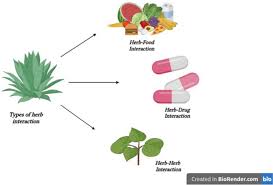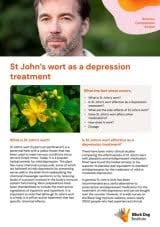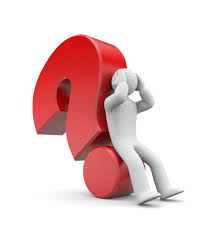A Flower With a Reputation

St john’s wort benefits have been praised for centuries, with this bright yellow flower often promoted as a natural way to ease sadness, anxiety, and even depression. You know what? For many people, the idea of treating low mood with a simple herb instead of a prescription is incredibly appealing. Honestly, who wouldn’t be tempted by a supplement that claims to lift your spirits without a doctor’s visit?
But here’s the thing: while some research supports its use as a natural antidepressant, St. John’s Wort also has a darker side. It’s known for herb medication interactions that can weaken birth control, blood thinners, and even cancer treatments. That’s why understanding both the promise and the risks matters before trying it.
A Little Backstory (Because History Always Sneaks In)

St. John’s Wort (Hypericum perforatum) has been part of human medicine for centuries. Traditionally harvested around St. John’s Day, it was thought to ward off evil spirits and ease “melancholy.” Those traditions echo today. People still talk about saint john wort benefits ranging from mood support to skin healing.
Now it’s sold as capsules, teas, tinctures, and oils. And yes, science shows compounds in the plant — hypericin and hyperforin — affect neurotransmitters like serotonin and dopamine. That’s why some call it a st john’s wort antidepressant. But as we’ll see, “natural” doesn’t mean risk-free.
The Shine: Why People Reach for It
St. John’s Wort and Depression Relief
Let me explain something here. Studies suggest st john’s wort and depression are connected in a real way — especially for mild to moderate cases. Some trials even show it performs about as well as SSRIs. For people worried about prescriptions, that’s appealing.
But there’s a catch. For severe depression, it doesn’t hold up. And self-treating without medical support can delay care that’s truly needed. If you’re unsure whether this herb is right for you, resources at www.evaluatemymeds.com can help you weigh the pros and cons.
Other Reported Saint John Wort Benefits
Beyond mood, some people explore st john’s wort uses for anxiety, menopause symptoms, or even sleep support. Anecdotes are everywhere, though the science is thin. Still, its reputation as a multipurpose herb keeps it popular.
The Catch: Herb Medication Interactions

Here’s the thing most supplement bottles don’t shout about: herb medication interactions. This herb doesn’t just adjust mood. It also revs up your liver’s CYP450 enzymes, which act like the body’s traffic cops for drugs. Imagine them waving traffic through faster than usual. The result? Medications get cleared out of your system too quickly, leaving them less effective.
And that’s not a minor issue. Let me give you some examples:
-
Birth control pills may stop working properly. That’s not a “maybe,” that’s a real risk.
-
Antidepressants taken together with St. John’s Wort can push serotonin levels into overload—what doctors call serotonin syndrome. Symptoms? Agitation, confusion, even seizures.
-
Blood thinners may weaken, raising the risk of blood clots.
-
Heart meds, cancer drugs, HIV treatments? Effectiveness reduced, sometimes dangerously.
It’s a big deal. Honestly, this is why healthcare professionals keep saying: before you take it, use a herb drug interaction checker. WebMD, Medscape, Drugs.com—they all have free tools. It takes two minutes, but it can save you from serious complications.
Science and Standards: Why the Confusion?
Now, you might be wondering: if this herb is so risky, why do some countries actually prescribe it? Here’s the quirky part.
In Germany, St. John’s Wort is regulated like a prescription drug. Doctors prescribe standardized extracts with consistent doses. Patients there get predictable results. Over here in the U.S.? It’s sold as a dietary supplement. No strict regulation. Which means one brand’s capsule might be twice as strong—or half as strong—as another.
So when you hear arguments like “It worked great for me!” versus “It did nothing for me!” both can be true. The inconsistency in strength makes research results muddy. It’s kind of like comparing Starbucks espresso to gas-station coffee—both are “coffee,” but they won’t hit you the same way.
Should You Even Take It?
When It Might Be Worth a Try
If you’re dealing with mild depression, you’re not on any other prescriptions, and you’ve talked it over with a doctor, the saint john wort benefits might be worth exploring. Some people genuinely feel lighter and steadier on it. For them, the st john’s wort antidepressant effect is real and helpful.
When It’s Definitely a No-Go
But if you’re on prescription meds—especially birth control, antidepressants, blood thinners, or treatments for serious conditions—this plant is a hard pass. The risks of st john’s wort and depression treatment without supervision outweigh the benefits. Pregnant or breastfeeding? Also off the table.
Here’s a way to think of it: St. John’s Wort is like a strong spice. A little in the right dish adds flavor. But dump it into everything, and you’ll ruin the meal.
Safer Alternatives Worth Considering

If you’re curious but cautious, don’t worry—you’ve got options. Therapy, counseling, and cognitive behavioral therapy remain gold standards for treating depression. Lifestyle tweaks—like getting better sleep, staying active, eating balanced meals—may sound simple, but the impact is huge. And yes, FDA-approved antidepressants exist for a reason: they’re studied, regulated, and monitored.
If you’re still interested in herbs, at the very least run a check. A herb drug interaction checker is like Googling a restaurant before making a reservation—it’s just smart.
Wrapping It All Up
So here’s the story in plain terms: St. John’s Wort is complicated. On the sunny side, st john’s wort benefits include mood support and relief for mild depression. On the shadow side, it disrupts medications you might desperately need.
Is it a natural antidepressant? Sure. Is it also a dangerous disruptor? Definitely. Both can be true. For some, the saint john wort benefits make life feel lighter. For others, the risks of herb medication interactions make it a bad idea.
That’s why healthcare guidance—and yes, a herb drug interaction checker—are non-negotiable. Natural doesn’t always mean safe. And when it comes to st john’s wort and depression, respect for the plant’s power is the smartest path forward.
FAQ Corner
Is it safe to take every day?
Maybe, if you’re healthy and not on other meds. But honestly, daily use without checking for herb medication interactions is rolling the dice.
Does it interfere with birth control?
Yes. One of the most well-documented risks. The plant can speed up hormone metabolism and reduce pill effectiveness.
Can it really help depression?
For mild or moderate depression, yes. The st john’s wort antidepressant effect is real. But for severe cases, it’s not enough.
What side effects should I expect?
Mild ones like stomach upset, dizziness, or light sensitivity. But the bigger risks are hidden interactions, which is why a herb drug interaction checker matters.
How should I start safely?
Always talk with your doctor first. Bring your medication list. Ask about st john’s wort uses and risks specific to your health.
🔗 External Link:
🔗 Internal Link:
-
Drug Interaction Checker –
/drug-interaction-checker -
Herbal Safety Blog –
/herb-medication-safety










